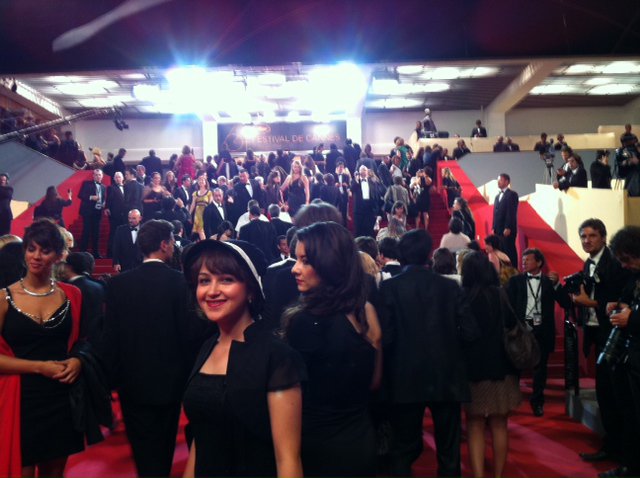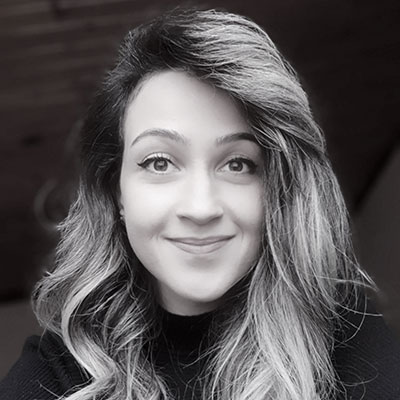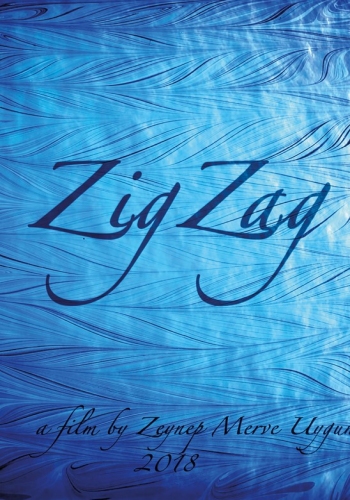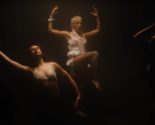Zeynep Merve Uygun
Zeynep Merve Uygun received her BA in English Language and Literature from Bogazici University and her MA in Film and Television Department from İstanbul Bilgi University. She received her Ph.D in trans-disciplinary documentary film from the University of Edinburgh in Scotland. Prior to her current occupation as an assistant professor in the department of communication design at Özyeğin University, she worked as a lecturer at Istanbul Bilgi University, Istanbul Şehir University and Koç University.
Zeynep Merve Uygun has taken part in many international film festivals and workshops as a mentor, tutor and also jury member. Her animated and experimental documentaries such as IN OUT and Zigzag, besides receiving many international awards, have been screened at more than 50 international film festivals including Cannes, Boston Turkish Film Festival, Golden Orange and IF Istanbul (Istanbul Independent Film Festival). Her research interests include visualisation of academic research, visual representation of body and space in documentary film, digital ethnography, and new media documentaries (interactive documentary, digital storytelling, transmedia documentary etc).

– How did you find your way into filmmaking?
Although the first adjectives that come to mind would be ‘ordinary’, ‘traditional’ or ‘conservative’ to describe my family rather than ‘intellectual’ or ‘artistic’ at first glance, I can easily say that I was raised in a house full of books, colors, symbols, stories, metaphors, tons of photo albums, thousands of photos, in other words an atmosphere full of words and images. I had a pink photo camera at the age of 5 and I remember myself craving to use it. I also remember myself writing love poems and songs at the age of 7, which to be honest I really find a bit weird now. Then, I studied literature at university and attended photography and cinema clubs. So, in short, I was always playing with words and images. Filmmaking is a kind of disguise which makes your toys seem more professional.
– Your films seem both political and philosophical; has being a woman in Turkey influenced your choice of topics?
I can give two examples to answer this question.
Last year, I attended an international workshop called Feminist Climate Ambassadors. We met many times to talk and take action on the climate crisis. It was a fascinating meeting space where we could share our ecological concerns, ideas and experiences. I was so surprised and disappointed to see that gender discrimination is all around the world. I had never thought such feelings are experienced universally.
My second example is derived from my impression of hundreds of films I watched during the selection process of various film festivals as a jury member. It makes me very sad to realise that as women of the world, our fears, concerns, traumas are not related to ethnicity, nationality or religion but to the universal oppression of patriarchy. As a result, I would say trying to survive and exist as a woman is a political act by nature regardless of your occupation, nation or location.
– Do you feel that expressing emotive topics in creative form is a powerful way to get a message across?
I spent 7 years on my practice-based PhD research where I produced both written (250 pages) and practical (6 short films) components. As far as I know, only my supervisors and the external examiners read my thesis. In total, that makes 5 people. Only 5! But one of my films has been watched by thousands of people and screened at many international film festivals, which made people aware of my research areas or interests.
Thus, I certainly believe in the power of visual creativity.
IN OUT
– Your film In Out is about the challenges of crossing borders. Have you experienced similar difficulties to the young woman in the film when travelling across Europe?
It was me. I experienced all of these difficulties myself.
– Did it really happen that a bribe had to be paid before being allowed to board the plane in Vienna?
Unbelievable but yes it happened. A white, blonde lady asked for a bribe at the very formal-looking check-in desks at Vienna Airport.
– Do you think Balkan people are prejudiced against Turkish people? Have wounds dating back to the Ottoman Empire not yet healed?
Yes, I feel broken-hearted especially when I think about my Slavic origins. We identify ourselves Pomak, which is an ethnic minority in Bulgaria. Having Pomak nationality makes me feel on the threshold, in other words in-between as both Bulgarian and Turkish parts do not accept Pomak identity.
– At the beginning of the film where you speak of no man’s land, does this refer to Cyprus?
No, it does not refer to any specific geographical location; my inspiration comes from many sources. Maybe I can name two of them. In 2009, I made a car journey from Gaziantep to Aleppo. While approaching the land border, I wanted to take some photos and started shooting. One of my friends warned me fiercely that I can be shot (literally) while shooting photos. When I asked the reason, he told me because it is no man’s land and it is forbidden to take photos. After this event, I started to read more on the concept of no man’s land, nationalist discourses, Foucaldian approaches and border studies which brings us to my second inspirational source: “Borders and ‘Ghosts’: Migratory Hauntings in Contemporary Visual Cultures”, a magnificent piece of work by Nermin Saybaşılı. This title refers to her PhD thesis. What I read was the Turkish version in book form, which was named “Sınırlar ve Hayaletler”.
– Your film was made 9 years ago; nowadays is it still as difficult to travel from Istanbul to Mardin or Diyarbakir?
It depends. The concept of border is quite interesting. On the one hand, a border can be concrete, disciplined, full of rules and dangers and orders, etc. On the other hand, it can be fluid and volatile.
ZIGZAG
– In ZigZag, you brought up several sensitive topics: women, religion, purity and dress code in your painful tale of a religious woman who loves to feel the sea water against her skin. Can you give us more examples of everyday difficulties women face in today’s Turkey?
I live in a gated community where the majority of people are secular conservatives. Basically, they adopt Westernised lifestyles but they also conserve traditional values. They never practice Islam but nonetheless send celebratory WhatsApp messages to our common residence group on Fridays, which is a special day for Muslims. These people also do not like veiled (headscarved) women. They express their hatred verbally and say they do not want to see any veiled people around. We have some veiled neighbours within the same gated community who are abused or insulted. They are not allowed to use the common swimming pool. In the same WhatsApp group, one of my female friends was abused as she wore shorts while she was heading to the same swimming pool. So, from these few examples, you can already understand that politics in contemporary Turkey revolves around a piece of fabric worn by women. We can multiply these unpleasant examples.
– Are shame and honour very important in Turkish families?
I am afraid we cannot talk about one kind of Turkish family. It cannot be generalised.
– Are you optimistic for a future of gender equality in your country? Are things moving in the right direction?
I would not answer this question regarding only Turkey. As I mentioned earlier, gender discrimination is a universal issue. Of course, there are times that I feel optimistic or pessimistic equally.
THE SECRET
– Can you tell us how you were inspired to make this gentle story? What inspired you to narrate the exquisite poem The Secret by Denise Levertov, adding music and dance?
I was taking Modern Poetry class with one of my best friends, İrem Damla Özen. One day, our instructor started to read “The Secret”. The first line of the poem begins: “Two girls discover the secret of life in a sudden line of poetry”. I do not remember the reason but what I clearly remember is us giggling together, maybe because we identified with these two girls for some specific reason? This experimental film is a kind of commemoration of those sweet days.
– The Secret seems to be about a poem, the poet and those who are touched by the poem; the narration is like a poem in itself, the silhouettes of dancers beautifully illustrating friendship, the optimism of youth and how poetry can give us insights in a unique and special way. Or is there another deeper meaning?
Thank you for these insightful and touching comments. It is very kind of you. Of course, there are some deeper meanings, as every work has. But I feel like if I reveal one, I will kill the other 99 possible great interpretations in your mind 😃
KAYKILMA
-The film Kaykılma is very funny but perhaps beneath the humour there are strong feelings? Do you think most women experience men as aggressive when they sit and spread out their legs in public?
I made this small film with another three filmmakers at AnimaDoc, an animated documentary workshop, which was designed by Documentarist Film Festival in İstanbul. We made the project in three days. On the first day, we discussed our common concerns and fiercely decided on this topic as it was bothering all of us at that time.
I do not know if it is still the same after the pandemic. I believe (or hope) that currently people are more aware of personal space in general.
– When you have shown your film to men, what reactions did you get?
First of all, our amazing instructor, dear Tomas Doruska was a male artist.🙂 He encouraged and helped us a lot to complete the project. Also, the organizer of this workshop, who is also the curator of most of the Documentarist Film Festival’s programs is another male filmmaker, Necati Sönmez. He was the one who shared the clip on many different social media channels simultaneously. Apart from them, some of my friends say “Oh sorry, I never realized this. So, I will be more careful from now on”. I never encountered someone who aggressively defended occupying women’s space on public transportation. By the way, frankly speaking from personal experience, compared to Turkey, this manspreading act bothered me far more in both Paris’ and New York’s subway/underground.
– Are you able to tell us a little about what your next project or projects might be?
I am working on the convergence of cultural heritage with new media documentaries. Recently, I have been working on an interactive web documentary about Pomaks.
Interviewed by Annie Clein and Pierre Scordia
- FASHION: Find what makes you happy and do it well!
- ETHOS
- Odessa, Ukrainian Hedoism… and Russia’s failure
- Caz Stuart – a feminist filmmaker




